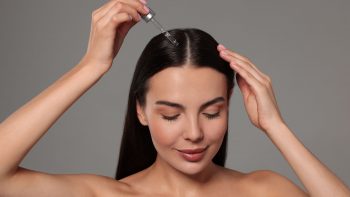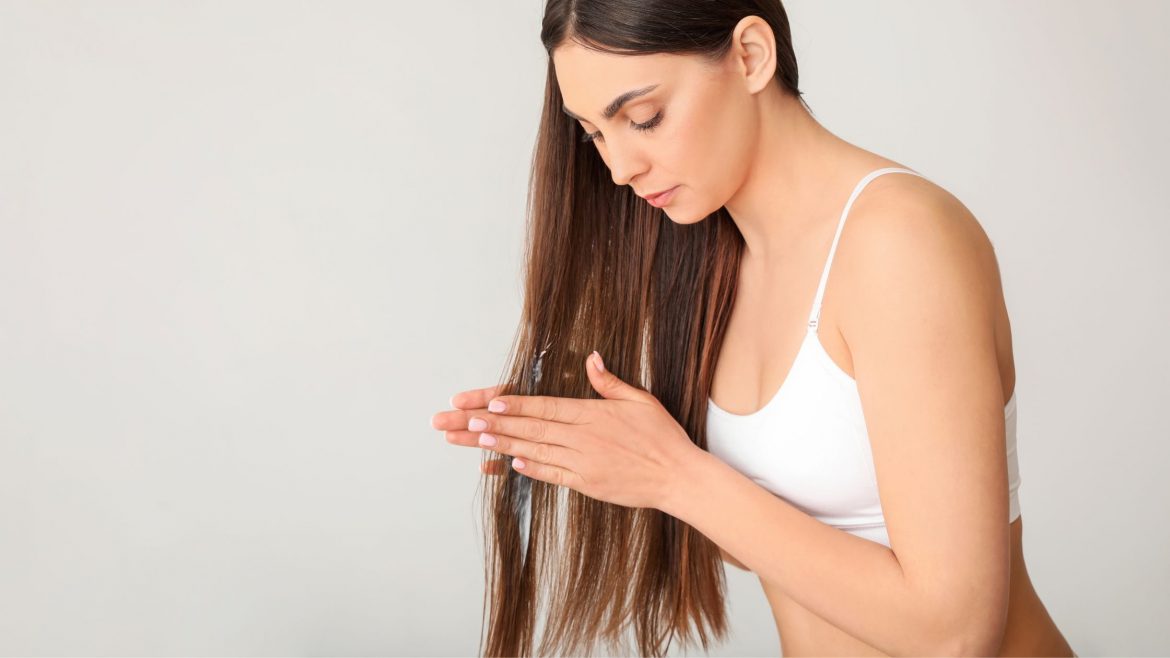Haircare trends come and go, but some DIY hacks stick around no matter how controversial. One of them? Using baby oil in your hair. Some swear by it for smooth, frizz-free locks, while others warn it can turn your hair into a greasy nightmare. But does it work, or is this one beauty myth better left behind?
ALSO SEE: How to fix broken eyeshadow and other makeup
What is baby oil, and what does it do to hair?
Baby oil is essentially mineral oil with added fragrance, designed to lock in moisture by creating a protective barrier on the skin. When applied to hair, it doesn’t hydrate the strands but rather seals in whatever moisture is already there. This can be helpful for thick, curly, or dry hair that struggles to retain moisture. A small amount smoothed over damp hair can help reduce frizz, add shine, and even work as a quick fix for flyaways. Some also use it as a pre-shampoo treatment to prevent excessive moisture loss during washing.
The downside? Baby oil doesn’t absorb into the hair shaft like natural oils such as coconut or argan oil. Instead, it coats the hair, which can lead to buildup over time. For those with fine or oily hair, this often results in strands feeling heavy and greasy rather than soft and nourished.

Canva
Will baby oil suit your hair type?
Whether baby oil is a game-changer or a disaster depends entirely on your hair type and how you use it. If your hair is thick, curly, or prone to dryness, a tiny amount—emphasis on tiny—can help smooth out frizz and add a healthy-looking sheen. However, if your hair is fine, straight, or naturally oily, baby oil can quickly overwhelm it, making it look limp and greasy rather than sleek and polished.
Scalp health is another factor to consider. Because baby oil creates a seal, it can trap oil, dirt, and dead skin cells, which isn’t ideal if you’re prone to dandruff or irritation. It’s also a challenge to wash out completely, sometimes requiring multiple rounds of shampoo to remove residue.
When is the best time to use baby oil in your hair?
Seasonal changes can affect how well baby oil works in your hair. During winter, when cold air and indoor heating strip moisture from your strands, a light application can help keep dryness and static at bay. In summer, however, humidity increases oil production, so adding baby oil to the mix might make your hair feel heavy and sticky rather than soft and manageable.

Canva
The verdict: should you use baby oil in your hair?
Baby oil can work in certain situations but is not a one-size-fits-all solution. If you have thick, curly, or frizz-prone hair and need a temporary fix for dryness, it might be worth trying in tiny amounts. But if you’re after deep hydration, baby oil won’t do much beyond creating a superficial shine. Lightweight natural oils like coconut, argan, or jojoba oil offer better long-term nourishment without the risk of buildup. Baby oil may give your hair a glossy finish, but whether it feels good is another story.
ALSO SEE:
Featured Image: Canva Stock Images

